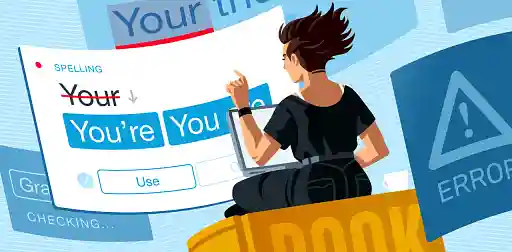Last updated on Oct 15, 2025
How to Become a Novelist (With Tips from Famous Authors!)
Savannah Cordova
Savannah is a senior editor with Reedsy and a published writer whose work has appeared on Slate, Kirkus, and BookTrib. Her short fiction has appeared in the Owl Canyon Press anthology, "No Bars and a Dead Battery".
View profile →Becoming a novelist is a lifelong dream for countless people, but how many of those people ever take the steps necessary to actually plan and pen your first novel? If you’re apprehensive about the journey, fear not! This post on how to become a novelist will take you through every part of the process, complete with advice from renowned writers.
Let’s start with one of the best (and easiest!) things you can do to prepare for your new life as a novelist.
1. Read as much as possible
It is a truth universally acknowledged that, to become a great writer, you first need to absorb great literature. While nearly every author has given this advice at some point, our favorite quote about it comes from Samuel Johnson: “The greatest part of a writer's time is spent in reading... a man will turn over half a library to make one book.”
The good news is, you’re probably ahead of the curve — reading was surely what made you want to become a novelist in the first place! That said, if you’re determined to write a novel of your own, you should start reading a bit more selectively.
Curate a focused reading list
Make a list of books you’ve already read that are a) in your intended genre and b) written in a style you personally admire — then seek out similar titles. And from now on, as you read, pay close attention to the following:
- Useful plot devices and character development techniques 🤔
- Impressive stylistic elements — metaphors, symbolism, etc. 🎨
- Tropes that appear often and how they're handled by each author 🎭
- Anything else that stands out to you (whether that’s good or bad)❗
If taking notes while reading is too distracting, at least mark each noteworthy element with sticky notes so you can go back and analyze it later. Then upon finishing each book, think about what you would most like to emulate, so you can proceed with a concrete set of goals!
2. Experience and record the world

Of course, books aren’t the only place to find inspiration as a writer. While reading helps you learn storytelling techniques, you’re much more likely to derive your actual story — or at least parts of it — from real-world experiences.
Take it from Nora Ephron, who famously declared that “everything is copy.” This philosophy perfectly characterizes her 1983 novel Heartburn — a fictionalized account of Ephron’s divorce following her husband’s affair. Despite its release nearly forty years ago, Heartburn still resonates with readers today for its raw emotion and details drawn from real life.
Use your experience as a starting point
Though it worked for Ephron, you don’t need to write precisely what you know (as the saying goes) to produce a good novel. You can pick and choose from real life, which is what most authors do. But the principle remains that it’s a great deal more meaningful (and usually less difficult!) to write a novel rooted in your experience than one that is not.
You may already have certain experiences/emotions in mind for your first novel. Even so, it never hurts to get out there and gather more! Try new things, meet new people, and record everything interesting. If someone tells you an amazing story, ask if you can use it in your own writing. (Another great Ephron quote: “writers are cannibals.”)
Basically, anytime you think “wow, I definitely don’t want to forget this!”, be sure to jot it down!
3. Find the story you have to tell
In the course of all this reading and experiencing, you’ll stumble upon many a good story idea — and may feel tempted to pick one so you can start writing already! But to maintain your drive, you can’t start with merely a good idea. You need something about which you’re deeply passionate, something that will keep you going through all those long nights of writing.
As Susan Sontag described, you must figure out which story you have to tell: “The story must strike a nerve in me. My heart should start pounding when I hear the first line in my head. I start trembling at the risk.” Toni Morrison put it in a slightly more practical way: “If there's a book that you want to read, but it hasn't been written yet, then you must write it.”
Whichever philosophy you’re inclined toward, this is clearly a big deal, so don’t take it lightly! Even if you already have the seed of an idea, you must nourish it before you commit to writing a novel. Here are some questions you might ask yourself to figure it out:
- How closely connected is this story to my own experience?
- Do I feel strongly about seeing this story portrayed in literature?
- What impact could this story have on readers? On society as a whole?
Your answers to these questions will help you determine whether this is a “must-write” story, or just a passing fancy for you.
Turn your personal story into a shelf-ready novel by following our free book development template.

FREE RESOURCE
Get our Book Development Template
Use this template to go from a vague idea to a solid plan for a first draft.
4. Develop and refine your voice
Another thing every great novelist has is a distinctive voice. You’ve hopefully been developing it this whole time, but here is where it becomes crucial! You’re about to begin your novel, and it’s much better to go into the process with an established voice than to try and impose one later.
This can be tough, as voice is one of the most nebulous aspects of writing. There’s no one “right” voice to possess as a writer, and a voice that sounds amazing to one reader might be totally off-putting to another. For example, the clean, sparse prose of Hemingway would come across as utterly un-literary to a lover of Nabokov’s elaborate, inventive writing, and vice-versa!
What makes a “voice”?
Fortunately, this means you don’t need to alter your own voice to fit some arbitrary industry standard. However, you still have to identify what you want your novel to sound like and what you can do to achieve that! Again, voice is difficult to define, but consider factors such as:
- Word choice
- Sentence variation
- Sentence and paragraph length
- Use of figurative language
- Use of rhetorical devices
- Which POV you’ll be using
When in doubt, return to your favorite authors à la Step 1 and see how they express their voices. But don’t outright copy them — at the end of the day, your voice should be undeniably yours. As Raymond Carver once said: “Every great writer makes the world over according to his own specifications. It is his world and no other.”
Pro tip: try using writing exercises and creative writing prompts to hone your voice! Short pieces are perfect for this, and may even lead to scenes that you can repurpose for your novel.
5. Invest in your characters

Before you dive into writing, there’s one more major thing to consider: your characters. You’ve thought of them in the context of your narrative, but have you fleshed them out as individuals?
Margaret Atwood says that characters aren’t just part of the story, but that they make the story: “A good plot has to have something happening… that is of interest to the characters, and we hope to the reader.”
So don’t think of your narrative as a story designed to entertain readers! Think of it as a sampling of your characters’ lives, which readers happen to overhear.
For this approach to work, of course, your characters need to have rich outer and inner lives. The “outer” part is the story you’ve already conceived: events, twists, conflicts, and resolutions that occur throughout your novel. But if you haven’t yet contemplated the “inner” component, here are a few resources to help:
- Character-creation sheet (downloadable)
- Character eevelopment guide (blog)
- 12 character archetypes every writer should know
6. Write “bird by bird”
One of best pieces of writing advice is actually in the title of Anne Lamott’s book Bird by Bird. The phrase comes from a childhood anecdote about her brother, who deferred for months on a school report about birds, only to become overwhelmed when it was time to write it. Fortunately, Lamott’s father had some sage advice for him:
“Bird by bird, buddy. Just take it bird by bird.”
Whether you’ve procrastinated for months or not, this sentiment is useful for any budding novelist! The immense challenge of writing a book seems much more doable when you break the job down into bite-sized tasks.
The bird is the (500) word(s)
How you divide and conquer your novel, so to speak, is up to you. That said, here are some pointers to set you up for success:
- Think of a “bird” as 500 words. Conventional wisdom seems to be that 500 words per writing session is the magic number — enough to feel productive and make solid progress, but not so much that it ever feels insurmountable.
- Don’t plan too far in advance. Some writers take “bird by bird” to mean portioning out your novel and meticulously scheduling them to be written over several months. This is as intimidating as trying to tackle the whole thing at once, if not more so! Instead, set your goals each week, or even one day at a time if that works for you.
- Write non-chronologically. Just as you should allow yourself to write imperfectly on the first draft, feel free to jump around in your story and let the words flow as they please.
Looking for more writing advice in the vein of Bird by Bird? Check out this must-read list of the 15 best books about writing!
7. Prioritize productivity
Of course, no matter how theoretically manageable your “birds,” you’ll get nowhere without a productive writing space — both physically and mentally. Luckily, much of that is in your control! Here are some tips for honing your physical and mental productivity as a writer.
To make your physical space more productive:
✍️ Set up a separate writing area, away from where you eat or sleep. It might seem small, but this distinction is crucial to help you shift from “home mode” to “work mode”, as well as to let your partner/roommates/family know when to leave you alone!
🗑️ Keep the space free of clutter — though allow yourself a stress ball or fidget toy if it helps you stay focused.
👩💻 Work on a computer that is disconnected from the Internet, or at least with all distracting websites blocked. (We lifted this one from the great Zadie Smith’s 10 rules for writers, so you know it’s important!)
To keep your mental space in order:
✅ Form good habits. Getting into a writing routine is tough, but once you’ve done it, your brain will adjust and it’ll become second nature! If you’ve never cultivated a consistent writing routine before, we’d highly recommend this webinar and our free course below.

FREE COURSE
How to Build a Solid Writing Routine
In 10 days, learn to change your habits to support your writing.
🖐 Use the “5-second rule.” It’s simple, but oddly effective: when you feel yourself procrastinating, count down from five and “launch” yourself into writing — no excuses! As Flaubert would say, sometimes you simply have to “shut up and get on with it.”
👭 Find writing buddies. This is one of the best ways to motivate yourself to get writing done, and there are some fantastic writing communities out there to get you started.
For more productivity tips to help you write faster, check out this post!
8. Know it’s supposed to be hard
The best-laid plans of mice and men often go awry, which means you’re going to hit a wall at some point in the novel-writing process. Actually, scratch that; you’re going to hit many walls, ranging from mundane writer’s block to full-blown existential meltdowns. This is why so few people become novelists in the first place: it’s hard work!
When this happens, remember that it’s supposed to be hard — and just keep pushing forward. Know that some of the most brilliant writers have been in this exact same position, and found it just as difficult as you! Take George Orwell, for example:
“Writing a book is a horrible, exhausting struggle, like a long bout of some painful illness. One would never undertake such a thing if one were not driven on by some demon whom one can neither resist nor understand.”
This is why Step 3 is so important: you need that gripping passion for your story to help you persevere. But as Orwell expresses, that still doesn’t mean the writing process will be easy. Try to keep this in mind from the beginning, so when you do run into roadblocks, you can find the strength to barrel through. Speaking of which…
9. Power through to the end

This is something of a variation on the previous tip, but we’re doubling down on it because so many would-be novelists give up in the middle of their books... forgetting the fact that they’ve already done most of the work!
Of course, it’s not always fatigue or frustration that causes this to happen. Sometimes it’s fear — specifically, what Margaret Atwood calls “completion fear.” This is when the author thinks, in her words: “I'm afraid to finish it, because what if it's not any good?”
You can always fix a bad ending
Allow us to take a definitive stance on the matter: you need to finish your novel, because THAT is what makes you a novelist. Remember the effectiveness of shutting up and getting on with it, and that your ending doesn’t have to be perfect, either! It’s a subjective consideration anyway, as plenty of authors write “bad” endings and still manage to get published.
Alternatively, if you simply have no idea how to end your novel… well, that’s more fixable than you might think! You might benefit from perusing this article on the six different types of story endings, as well as useful tips on how to craft your very own.
10. Publish and repeat
But wait, there’s more! Though writing a novel qualifies you as a novelist in our eyes, most people who call themselves “novelists” have their books edited, formatted, and published for others to read. Then they continue writing more novels to establish their careers.
If you want to turn this dream into a profession, you’ll need to do the same. First things first, you must decide whether you want to self-publish or publish traditionally. However, if you already know which one of these paths is right for you, feel free to proceed to one of our comprehensive publishing guides:
- How to self-publish a book: 7 simple steps to success
- How to get a book published: your guide to success in 2025
Depending on which way you go, you might have quite a bit of work ahead of you: rounds of editing, figuring out your cover design, not to mention writing more books. But whatever else happens, you’ll forever be part of this elite fellowship of novelists — and maybe someday you’ll be offering up writing advice of your own!
Hire a book coach on Reedsy
Kenneth Z.
Available to hire
What do you get when you combine an MFA, a decade of professional editing experience, and far too many wings and donuts? This guy.
Sandy F.
Available to hire
Literary agent; picture book consultant and development editor; published author/illustrator; mentored by Maurice Sendak at Yale.
Britny P.
Available to hire
Britny (she/they) is a YA fiction and pop culture non-fiction editor with over 7 years of traditional publishing experience.








